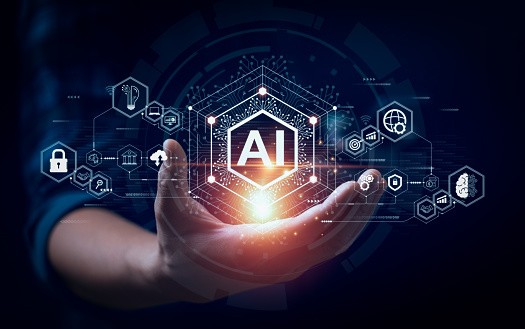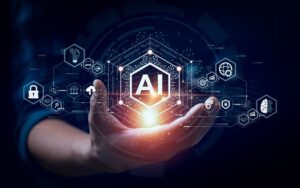Artificial Intelligence (AI) has rapidly evolved from a futuristic concept to a transformative force across various industries. As businesses and organizations integrate AI technologies into their operations, they are experiencing unprecedented changes in efficiency, decision-making, and innovation. In this article, we’ll explore how AI is reshaping different sectors, the benefits it brings, and the challenges that come with its implementation.
1. Healthcare: Revolutionizing Patient Care
AI is making significant strides in healthcare, enhancing everything from diagnostics to patient management. Machine learning algorithms analyze vast amounts of medical data to assist in identifying diseases more accurately and quickly than traditional methods. For instance, AI-powered imaging tools can detect anomalies in radiology scans, leading to early intervention and better patient outcomes.
Additionally, AI chatbots are improving patient engagement by providing instant responses to common inquiries, scheduling appointments, and even offering basic medical advice. These innovations not only streamline operations but also allow healthcare professionals to focus more on patient care.
2. Finance: Enhancing Security and Efficiency
In the financial sector, AI is transforming how institutions manage risk, detect fraud, and personalize services. Machine learning models analyze transaction patterns to identify fraudulent activity in real time, protecting both consumers and businesses. Moreover, AI algorithms assess credit risks more accurately, leading to better lending decisions.
Financial advisors are also leveraging AI tools to analyze market trends and provide personalized investment strategies. This technology empowers clients with data-driven insights, making financial planning more accessible and efficient.
3. Manufacturing: Optimizing Production Processes
AI is at the forefront of the fourth industrial revolution, with its integration into manufacturing processes leading to increased automation and efficiency. Predictive maintenance powered by AI helps manufacturers anticipate equipment failures before they occur, minimizing downtime and repair costs.
Robotics, combined with AI, is revolutionizing assembly lines, enabling greater precision and speed. Smart factories equipped with AI technologies can adjust production schedules in real time based on demand fluctuations, resulting in reduced waste and optimized resource allocation.
4. Retail: Personalizing Customer Experiences
The retail industry is experiencing a transformation driven by AI’s ability to analyze consumer behavior and preferences. AI algorithms can recommend products based on past purchases and browsing history, creating a personalized shopping experience that increases customer satisfaction and loyalty.
Additionally, AI chatbots and virtual assistants are enhancing customer service by providing instant support and guidance. Retailers are using AI to optimize inventory management, predicting demand more accurately and reducing overstock and stockouts.
5. Transportation: Paving the Way for Autonomous Vehicles
AI is reshaping the transportation industry, particularly with the development of autonomous vehicles. Companies like Tesla and Waymo are at the forefront of this innovation, utilizing AI to enhance navigation, improve safety, and reduce traffic congestion.
Moreover, AI-driven logistics and supply chain management systems are optimizing routes and reducing delivery times, significantly improving operational efficiency. Predictive analytics enable companies to forecast demand and adjust their strategies accordingly, ensuring timely delivery and customer satisfaction.
Challenges and Considerations
While the rise of AI offers numerous benefits, it also presents challenges that industries must address. Issues such as data privacy, security concerns, and the potential for job displacement require careful consideration. Organizations must prioritize ethical AI practices, ensuring transparency and fairness in their implementations.
Conclusion
The rise of AI is undeniably transforming industries in profound ways, driving innovation and efficiency while enhancing customer experiences. As technology continues to advance, organizations that embrace AI will be better positioned to navigate the future landscape. However, it’s essential to approach these changes with a focus on ethics and responsibility, ensuring that the benefits of AI are shared broadly across society.
By staying informed and adaptable, professionals in every sector can leverage AI to not only enhance their operations but also contribute to a more innovative and inclusive future.




